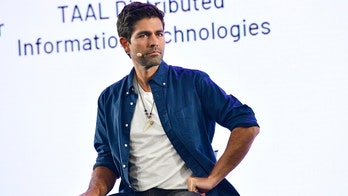In a new ad supporting the Biden-Harris campaign, actor Robert De Niro has peddled a string of questionable narratives about former President Trump, drawing criticism from conservatives for perpetuating hoaxes and taking Trump's words out of context.

Robert De Niro's recent anti-Trump ad for the Biden-Harris campaign has ignited controversy, with conservatives denouncing the ad's dissemination of false and misleading claims about former President Trump. The ad, which depicts Trump as an unstable dictator willing to do anything to seize power, has been met with skepticism and outrage by conservative commentators and supporters.
De Niro's narration begins by citing questionable incidents from Trump's presidency, including alleged "midnight tweets," the "drinking bleach" incident, the use of tear gas against protesters, and a "photo op" involving the clearing of Lafayette Park. While some of these incidents have been the subject of debate, others have been widely debunked or misrepresented by Democratic figures and the media.

Regarding the "bleach" incident, De Niro's ad insinuates that Trump encouraged Americans to inject bleach during a White House briefing. However, the former president was referencing an unspecified "disinfectant" that he was learning about which could potentially be used to combat the coronavirus. He never mentioned bleach.
The "photo op" incident, where Trump walked over to the cleared St. John's church after protesters were removed from Lafayette Park, has also been misconstrued. An Interior Department Inspector General investigation found that the clearing of the park was necessary to install anti-scale fencing to protect the White House grounds. Trump's walk to the church occurred hours after the decision to clear the park had been made.

De Niro's ad further claims that Trump has threatened to be a "dictator" and "terminate the Constitution." This allegation stems from a comment Trump made during a rally, where he stated, "If I don't get elected, it's going to be a bloodbath." Conservatives have decried this comment as being taken out of context, arguing that Trump was referring to the economic consequences of not winning the election.
Multiple outlets, including Rolling Stone and NBC News, initially reported on Trump's "bloodbath" comment without providing the proper context. However, Trump campaign spokesperson contradicted this framing, stating that Biden's policies would create an "economic bloodbath" for the auto industry. Elon Musk and other conservative commentators criticized these outlets for their misleading headlines and lack of context.
The Biden-Harris campaign has not responded to Fox News Digital's request for comment. However, the campaign's decision to feature De Niro's incendiary rhetoric in an official ad has raised concerns about the campaign's commitment to truthfulness and fairness.
Conservatives have expressed outrage over the Biden-Harris ad, accusing the campaign of deliberately spreading misinformation and perpetuating hoaxes about Trump. They argue that such tactics undermine the integrity of the electoral process and further polarize an already divided nation.
In conclusion, Robert De Niro's anti-Trump ad for the Biden-Harris campaign has sparked controversy due to its dissemination of questionable and debunked narratives about former President Trump. Conservatives have condemned the ad's reliance on hoaxes and taken out of context remarks, accusing the campaign of engaging in dishonest tactics to discredit their political rival. This incident highlights the growing trend of political campaigns resorting to misleading and inflammatory rhetoric to gain an edge in elections, fueling partisan animosity and casting doubt on the reliability of our political discourse.










